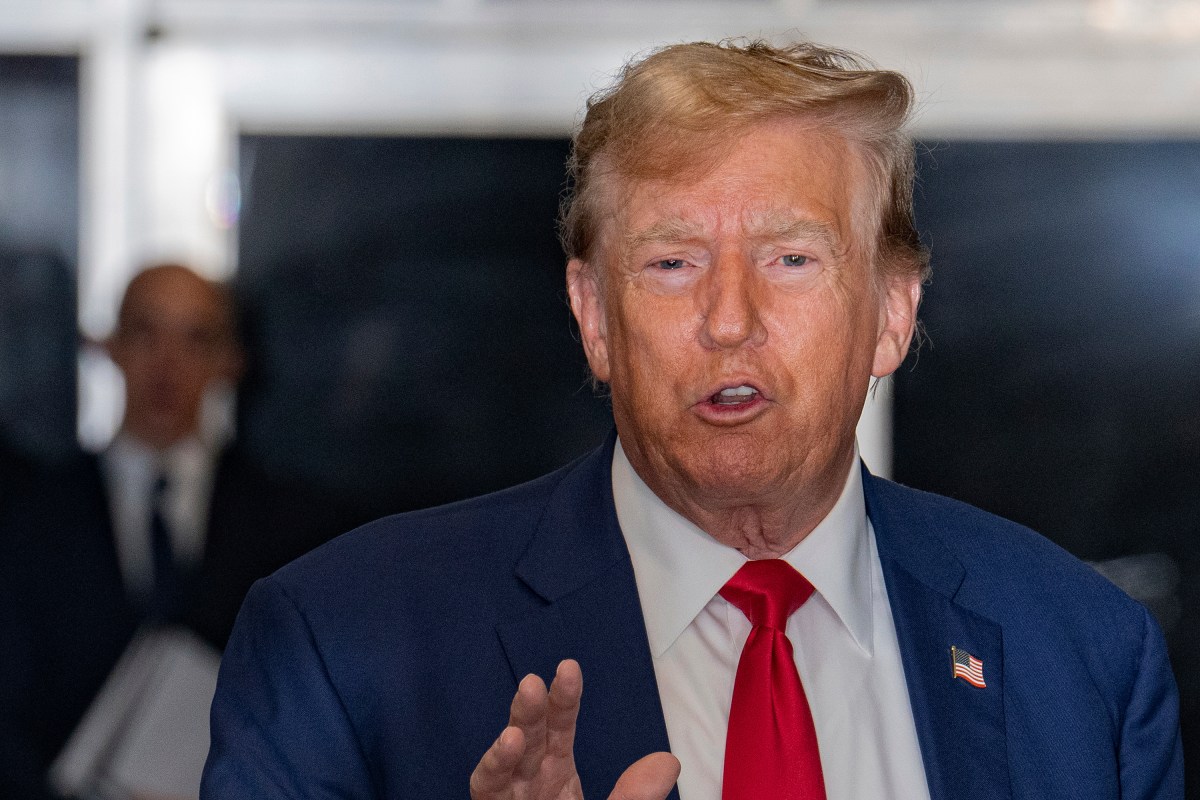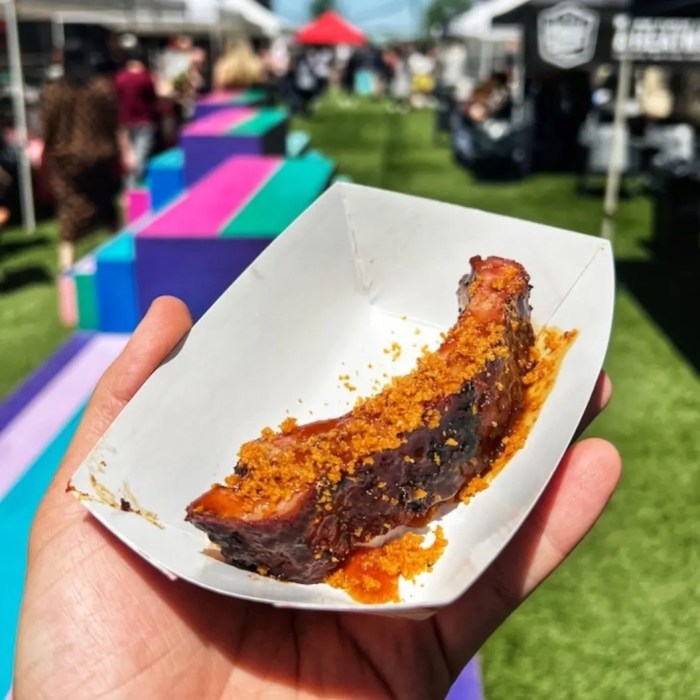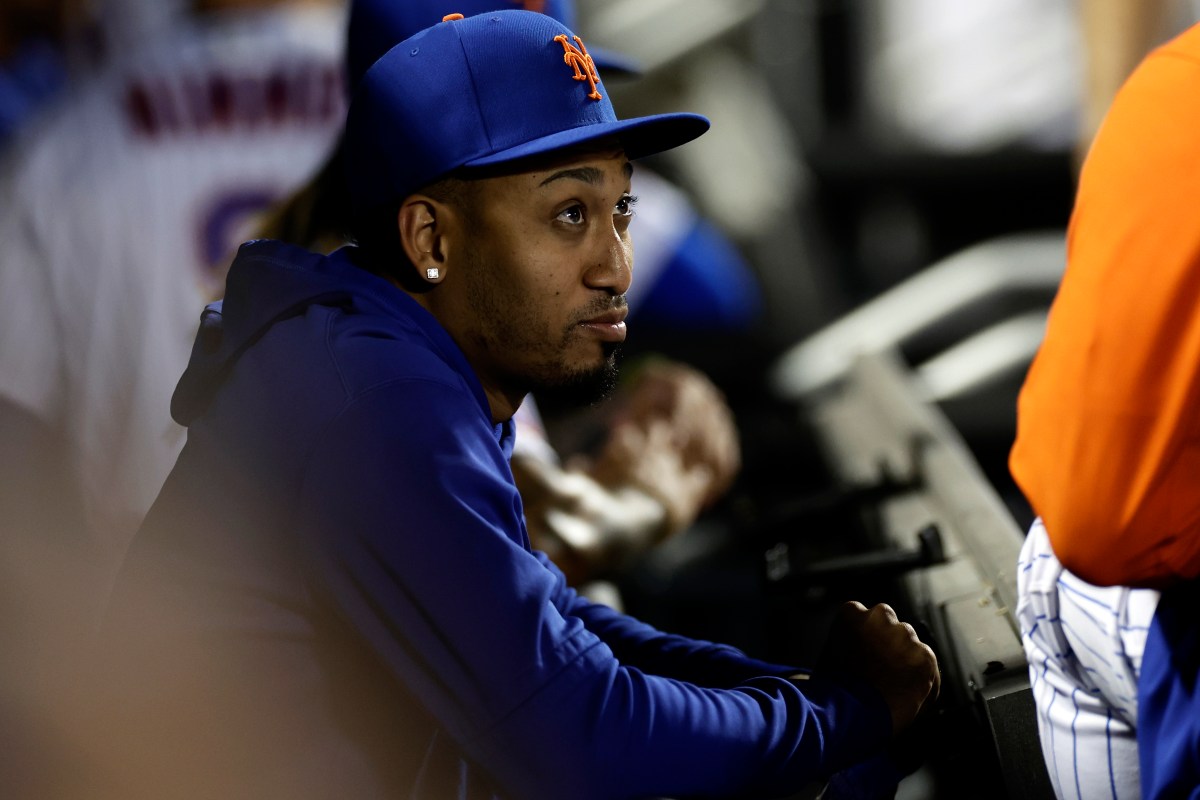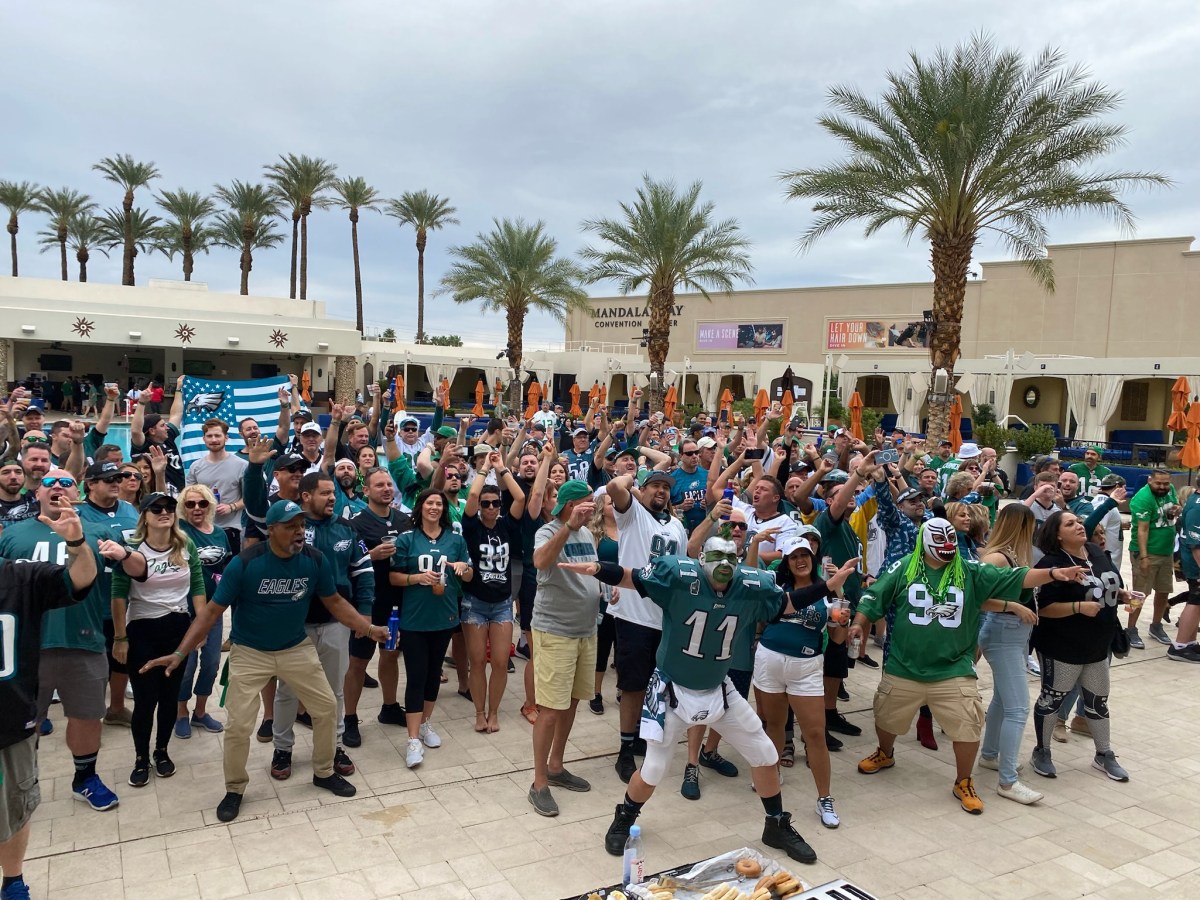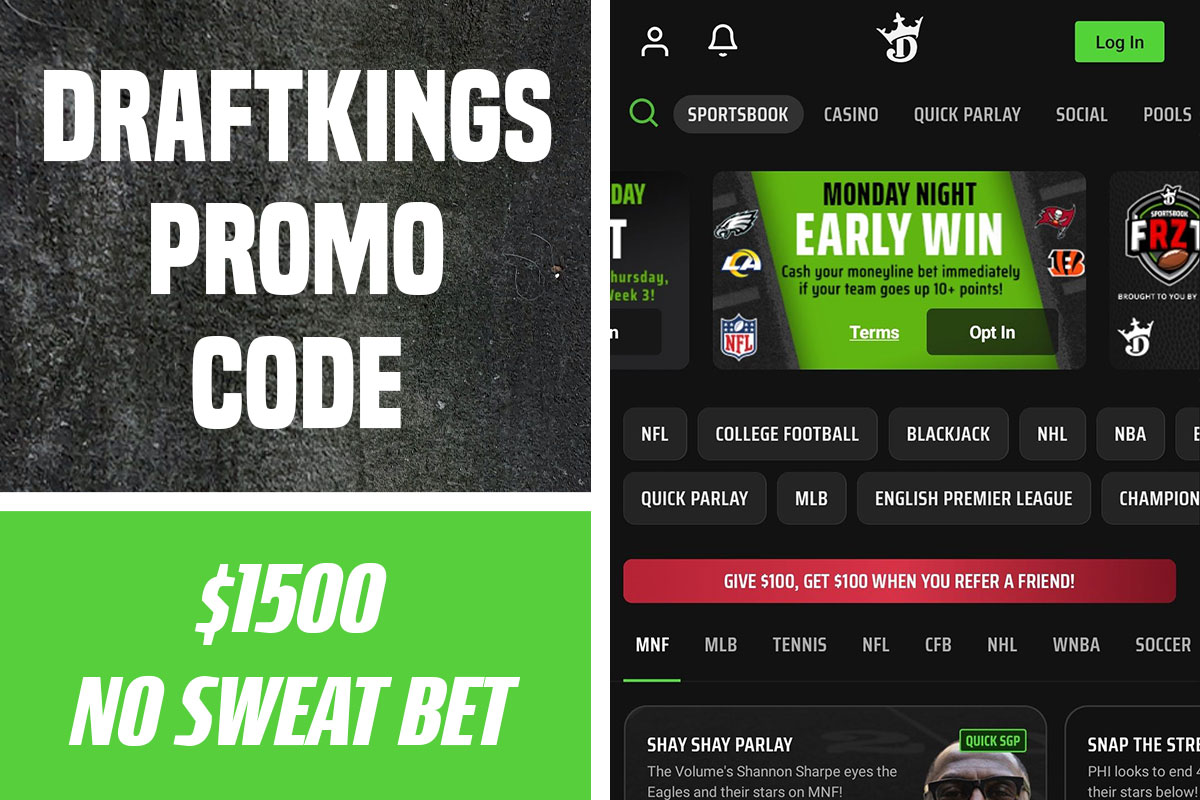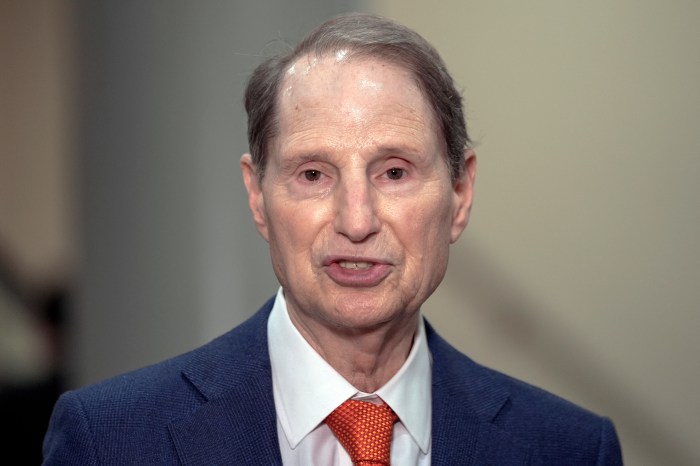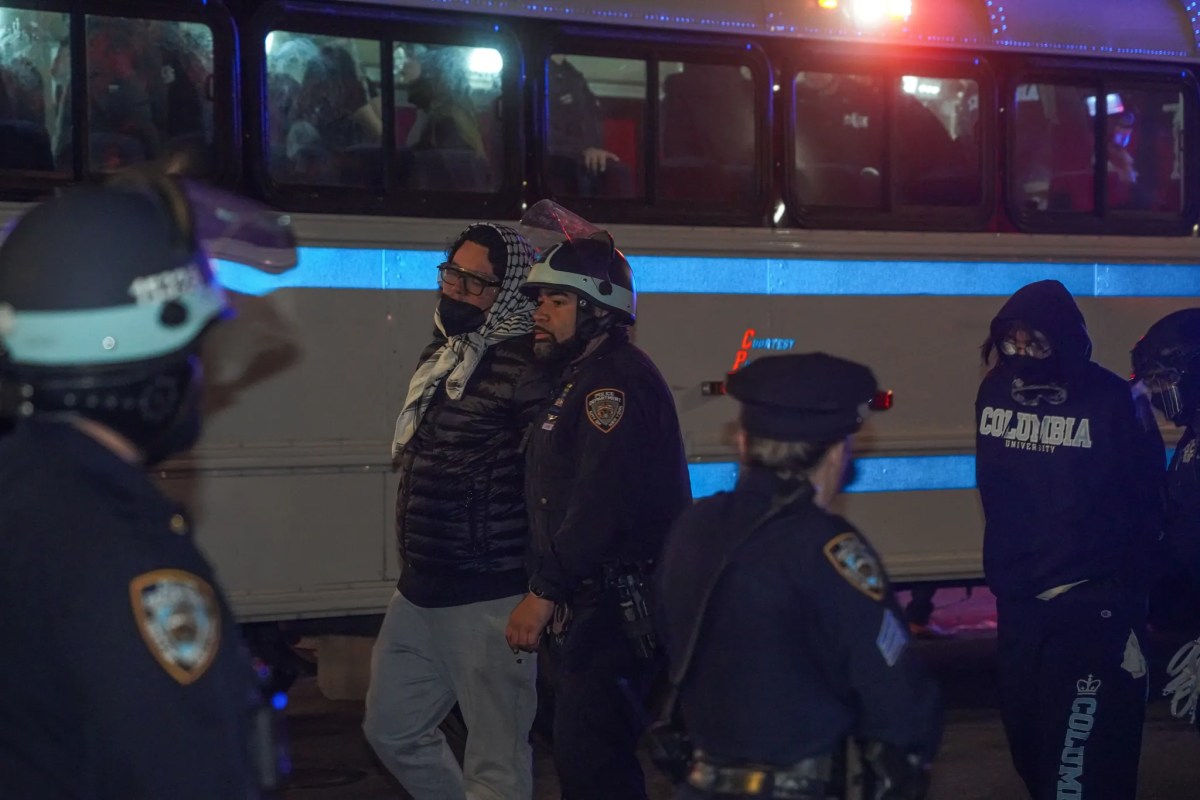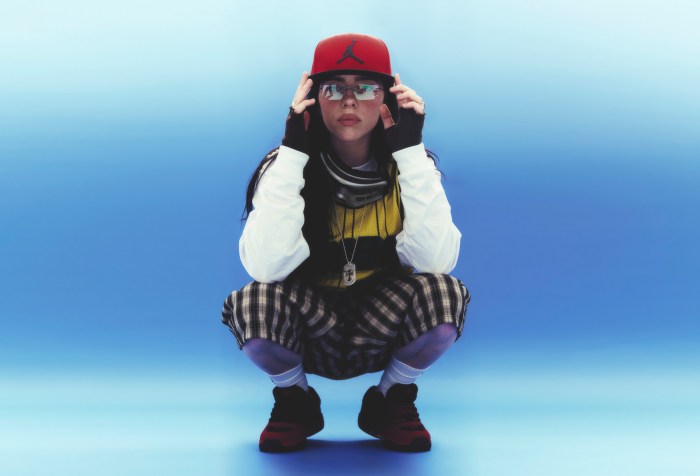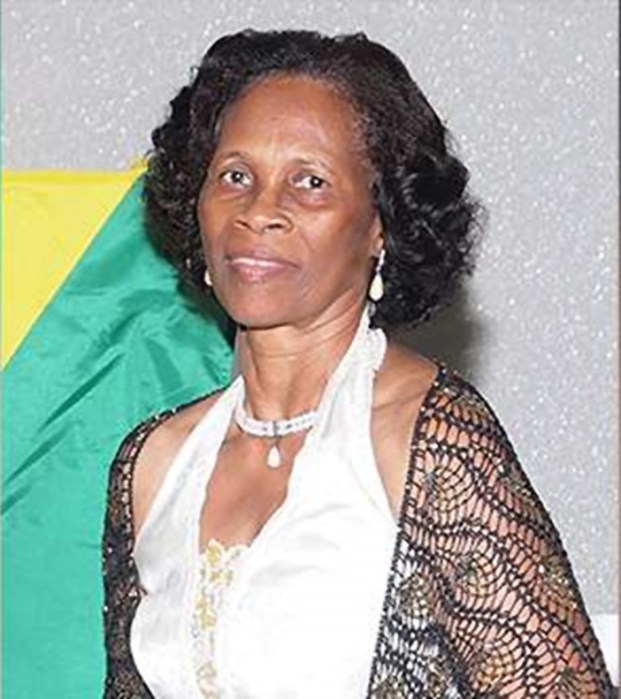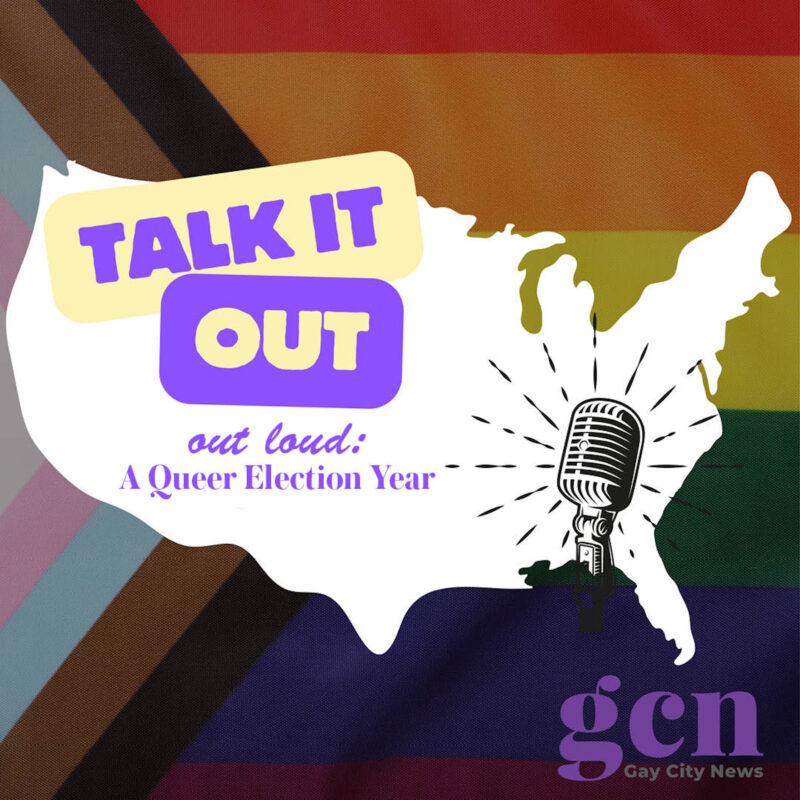NEW YORK (AP) — Prosecutors in Donald Trump’s hush money trial said Friday that they expect to call just two more witnesses to the stand, potentially laying the ground for resting their case next week.
One of those witnesses is expected to be Michael Cohen on Monday, two people familiar with the matter told The Associated Press. The people could not discuss the matter publicly and and spoke to AP on condition of anonymity.
The updates on witnesses came after testimony adjourned for the day, capping a feverish week that saw porn actor Stormy Daniels take the stand, two failed attempts by the defense to have a mistrial declared, gag order sanctions and more.
Friday’s witnesses included Madeleine Westerhout, a former Trump White House aide, two paralegals from the Manhattan district attorney’s office, and two telecommunications employees — one from AT&T and one from Verizon — who authenticated phone records as part of their testimony.
The intensity of the week largely revolved around Daniels’ sometimes graphic testimony, which riveted jurors and drew upset from defense attorneys who decried it as prejudicial and overly gratuitous. The prosecution defended its questioning and Daniels’ details of the alleged 2006 sexual encounter with Trump and ultimately, the judge denied the requests for a mistrial — chiding the defense for not objecting more during testimony.
Trump has denied the two ever had sex.
Prosecutors are ramping up for star witness Michael Cohen, who arranged the $130,000 payment to Daniels and later went to prison for orchestrating the payments and other charges.
Prosecutors say Trump and two of his associates orchestrated a scheme to influence the 2016 election by purchasing and then burying stories that might damage his campaign.
Trump is accused of falsifying internal business records to cover up the hush money payments by recording them as legal expenses. He has pleaded not guilty.
The case is the first-ever criminal trial of a former U.S. president and the first of four prosecutions of Trump to reach a jury.
Currently:
— Trump is limited in what he can say about his court case. His GOP allies are showing up to help
— Here’s what happened on Thursday: Stormy Daniels’ testimony, a denied mistrial and an Oxford comma
— Hush money, catch and kill and more: Terms to know in Trump trial
— Key players: Who’s who at Donald Trump’s hush money criminal trial
— The hush money case is just one of Trump’s legal cases. See the others here
Here’s the latest:
Speaking to reporters in the courthouse hallway on Friday, Donald Trump addressed the allegation at the heart of the case: that he falsified his company’s records to conceal the nature of hush money reimbursements to Michael Cohen.
“A very good bookkeeper marked a legal expense as a legal expense,” he said. “He was a lawyer, not a fixer, he was a lawyer,” he added, referring to Cohen.
After the jury in Donald Trump’s criminal trial left for the day Friday, Judge Juan M. Merchan took up an issue related to Allen Weisselberg’s absence from the trial, where he’s been mentioned as a key figure in orchestrating reimbursement payments to ex-Trump lawyer Michael Cohen.
Weisselberg, 76, is currently jailed at New York City’s Rikers Island complex, serving a five-month sentence for lying under oath in his testimony in the state attorney general’s civil fraud investigation of Trump. He pleaded guilty in March and was sentenced last month. His plea agreement does not require his cooperation or testimony in the criminal case.
Prosecutors weren’t planning to call Weisselberg as a witness, but Merchan encouraged them to see if they can get him to court before seeking to introduce evidence to explain his absence.
“Right now it’s seems to me we’re trying to jump the gun. We’re trying to explain why he’s not here without making any effort to get him here,” Merchan said.
Trump lawyer Emil Bove noted that his absense “is a very complicated issue” and may require a jury instruction about uncalled witnesses.
The reason Mr. Weisselberg is not available as a witness is that the district attorney’s office “initiated a perjury prosecution in the lead up to this case,” Bove said.
Prosecutors argued that subpoenaing Weisselberg to testify would probably be a waste because he remains loyal to Trump and would likely invoke his Fifth Amendment right against self-incrimination.
“If counsel prefers, we’d be willing to stipulate that Weisselberg is in jail for perjury,” Assistant District Attorney Christopher Conroy responded.
“I think that would be one way to resolve it,” Merchan said before expressing his desire for prosecutors to first see if they could summon Weisselberg to court.
Michael Cohen is expected to take the stand in Donald Trump’s hush money case on Monday, two people familiar with the matter told The Associated Press. The people could not discuss the matter publicly and and spoke to AP on condition of anonymity.
Associated Press writers Michael R. Sisak and Jake Offenhartz contributed to this report from New York.
Just before court let out on Friday, Judge Juan M. Merchan told prosecutors they should inform Michael Cohen “that the judge is asking him to refrain from making any more statements” about the hush money case or about Donald Trump.
The directive came after Trump’s attorneys requested Merchan implement a separate gag order for Cohen, who has continued to post about Trump on social media in recent weeks.
“It’s becoming a problem every single day that President Trump is not allowed to respond to this witness but this witness is allowed to continue to talk,” defense attorney Todd Blanche said.
Prosecutors said they had already requested Cohen and other witnesses not talk about the case, but had no direct means of controlling their behavior.
Prosecutors in Donald Trump’s hush money case said Friday that they expect to call just two more witnesses.
After jurors were dismissed for the week just before 1 p.m., prosecutor Joshua Steinglass told Judge Juan M. Merchan that “it’s entirely possible” that the prosecution will rest its case by the end of next week.
The trial will meet for three days next week — Monday, Tuesday and Thursday. Wednesday is the trial’s usual day off and Friday court won’t be in session so Trump can attend his son Barron’s high school graduation.
Jaden Jarmel-Schneider’s testimony in Donald Trump’s hush money case involves a key recording that was played in court earlier in the trial, which appears to show Trump and Michael Cohen discussing the payments made to Karen McDougal to bury her story of an alleged affair. Trump’s attorneys have suggested Cohen doctored the recording, citing the fact that it cuts off abruptly.
Records show Cohen received a phone call about 22 seconds after the recording was cut off, according to Jarmel-Schneider’s testimony. Prosecutors seemed to be eliciting the testimony to back up their claim that the recording wasn’t edited, but was instead cut short after Cohen received an incoming call.
In a moment that enlivened a rather staid day of testimony, Trump attorney Emil Bove asked Jarmel-Schneider about the “tedious” work of going painstakingly through lengthy phone, data and other records and preparing charts from them.
“Actually, I kind of enjoyed it,” the paralegal said matter-of-factly, to chuckles from the courtroom audience.
“Respect,” Bove replied.
Meanwhile, Trump continued to scrutinize some papers on the table in front of him, as he had for much of the courtroom day.
As a second witness from the Manhattan district attorney’s office began his testimony in Donald Trump’s hush money trial, the head of that office — Alvin Bragg — watched from the front row on Friday.
Bragg has attended the trial only occasionally so far. He was not in the room during the dramatic testimony by Stormy Daniels earlier this week. Since announcing the indictment against Trump last year, Bragg has tried to keep a relatively low profile while facing verbal attacks from Trump, who has accused Bragg of bringing the case for political reasons.
Jaden Jarmel-Schneider, another paralegal from the prosecutors’ office, has taken the stand in Donald Trump’s hush money case.
He has worked with phone records in the case, including data from Michael Cohen’s phone.
Defense lawyer Todd Blanche began his cross-examination of Georgia Longstreet by asking her to confirm that her review of social media posts did not extend to Michael Cohen.
“You’re still not reviewing Mr. Cohen’s TikTok?” Blanche asked. “You’re not aware of anything he TikToked, for example, two nights ago?”
Cohen has continued to post actively throughout the trial. In a live TikTok video earlier this week, he wore a shirt featuring a figure resembling Donald Trump with his hands cuffed, behind bars — a piece of merchandise that Cohen sells as part of his podcast.
Longstreet confirmed her review did not include posts sent by Cohen. Her testimony concluded soon after.
During testimony in Donald Trump’s criminal trial on Friday, Georgia Longstreet read into the record text messages chronicling months of discussions in 2016 between Stormy Daniels’ manager Gina Rodriguez and then-National Enquirer editor Dylan Howard about Daniels’ claim that she had once had sex with Trump.
The texts include a back-and-forth on Oct. 8, 2016, the day after Trump’s infamous “Access Hollywood” tape leaked.
Rodriguez tells Howard she’s aware of an offer of $250,000 for Daniels’ story and that ABC’s “Good Morning America” and the Daily Mail are interested in interviewing her. The next day, text messages show, Rodriguez and Howard haggled over a price for the National Enquirer to acquire the rights to Daniels’ story, finally settling on $120,000.
Rather than the tabloid making the deal, Trump’s then-lawyer Michael Cohen ended up paying Daniels $130,000 — a higher price to add compensation for a lawyer who negotiated on her behalf. The text messages add another dimension to the negotiations, which were previously discussed in testimony by former National Enquirer publisher David Pecker and others.
Through new testimony from Georgia Longstreet, a paralegal with the Manhattan district attorney’s office, prosecutors on Friday introduced jurors to tweets showing that Donald Trump initially praised Michael Cohen after the then-lawyer came under federal investigation.
The former president then began bashing him on the social platform, now known as X, after Cohen pleaded guilty to campaign-finance violations and other crimes, and said Trump had directed him to arrange the hush money for porn actor Stormy Daniels.
Trump was never charged with any crime related to that federal investigation.
Georgia Longstreet, a paralegal at the Manhattan district attorney’s office who previously testified about procuring social media posts and other publicly available evidence, returned to the witness stand in Donald Trump’s criminal trial on Friday.
She followed two telecommunications employees who took the stand to authenticate phone records.
As court in Donald Trump’s hush money trial resumed Friday after a morning break, Judge Juan M. Merchan sided with defense lawyers in excluding a 1999 CNN interview the former president gave to the late Larry King.
In the interview, Trump discussed his familiarity with campaign finance laws. Merchan said the tape was “too attenuated” to the events at hand and would require jurors to make inferences about how Trump’s views then related to the events involved in the case that happened decades later.
While jurors were excused for a morning break, Donald Trump and the lawyers on both sides stayed in the courtroom and briefly argued about a video clip from an old interview that the former president’s lawyers want excluded from the hush money case.
Prosecutors are seeking to play a clip of an interview Trump gave to late CNN host Larry King in 1999 in which he discussed his familiarity with campaign finance laws. Part of their case involves allegations that the hush money payments may have violated such laws.
Trump’s lawyers argued that the clip is “not relevant with regard to President Trump’s state of mind in 2016,” the time of the $130,000 payment to porn actor Stormy Daniels, in part because campaign finance laws had changed by then.
Merchan said he would rule after the break.
Fatigue appeared to be setting in among some jurors in Donald Trump’s hush money case on Friday. As another records witness testified, one juror stifled a yawn. Another stretched out his arms. Others shifted their gaze around the room or stared at the ceiling.
The records witnesses testimony is important to the prosecution’s case, which ultimately hinges on the issue of record-keeping. But it is also deeply technical, requiring the witness to explain how data is stored and define a string of lengthy acronyms.
AT&T records witness Daniel Dixon finished his testimony in Donald Trump’s hush money trial mid-morning Friday. Continuing the phone-records theme among records, Verizon worker Jennie Tomalin was called next and was expected to also testify to authenticate various phone records.
As the AT&T witness testified Friday morning, Donald Trump was leaning over and reading various documents at the defense table, taking notes and piling them up in front of him.
At one point he showed some of the documents to his lawyer Todd Blanche, who was sitting next to his left. They appeared to be a printout of a news article.
Before entering the courtroom earlier in the day, Trump had read aloud from printouts of opinion pieces criticizing the hush money trial, but noted he had to “edit” in real time due to the gag order restricting what he can say.
“I’ll be going over them with you later,” he told reporters. It wasn’t clear if the papers at the defense table were the same ones.
Daniel Dixon, an AT&T employee was called to the stand in Donald Trump’s hush money trial Friday morning following the conclusion of former White House aide Madeleine Westerhout’s testimony.
Dixon will be authenticating some records.
Donald Trump was very upset by the Wall Street Journal’s 2018 story about his hush money deal with Stormy Daniels, according to former White House aide Madeleine Westerhout.
“My understanding was that he knew it would be hurtful to his family,” she testified on Friday, though she later acknowledged not recalling him saying so specifically.
The answer, elicited by Trump lawyer Susan Necheles, went to the defense’s argument that Daniels was paid to stay silent in order to protect Trump’s family, not his campaign.
Guided by Donald Trump’s defense attorney, Madeleine Westerhout on Friday painted the former president as a frequent multitasker who spent large chunks of his days signing documents, sometimes without even looking at them.
“Commissions, proclamations, executive orders, memos, letters,” Westerhout recalled. She said that she sometimes saw Trump put his signature to checks without reviewing them.
Still, Trump avoided using automated means of signing paperwork.
“He felt that if someone was getting his signature, they deserved his real signature, right?” Necheles asked, before a prosecution objection cut off Westerhout’s answer.
A dry but important part of Madeleine Westerhout’s testimony concerned the process by which Donald Trump received personal mail — including checks to sign — while in the White House.
It’s relevant because that’s how he got and signed the checks that reimbursed Michael Cohen for his $130,000 hush money payment to Stormy Daniels.
Westerhout’s testimony and others have established that his company’s staff sent the materials to an aide — at first his longtime bodyguard Keith Schiller — at their homes. Then the items would be brought to the White House, where Westerhout would bring them to Trump and send the checks them back.
Under questioning from Trump lawyer Susan Necheles, Westerhout testified Friday that the packages were sent to aides directly because it took items a long time to percolate through the White House mail system.
Under additional redirect questioning by prosecutor Becky Mangold, Westerhout denied that Trump’s roundabout mail arrangement was an “end run around the White House security protocols,” but rather a way to “get things to him fast.”
But, Westerhout acknowledged that such letters and packages wouldn’t have gone through the normal White House security screenings.
As defense lawyer Susan Necheles resumed her cross-examination of Madeleine Westerhout on Friday, the former White House secretary appeared to alter a claim she made Thursday that she remembered Trump calling Allen Weisselberg, then his company’s chief financial officer, with question about certain checks he had to sign for his personal expenses.
Questioned by Necheles, she acknowledged she had no specific recollection of Trump speaking with Weisselberg at all during his first year in office and only a vague recollection that they’d ever spoken about a check.
“But you’re not even sure if it’s true?” Necheles asked. Westerhout said it was hard to recall because Trump “spoke to so many people.”
Friday’s court proceedings in Donald Trump’s hush money trial began with another bench conference — increasing a recent trend of private discussions between the attorneys for both sides and the judge at the start of each trial day.
As the rest of his lawyers chatted with prosecutors and the judge at the bench, Donald Trump sat with Todd Blanche at the defense table. Earlier in the trial, Trump sat alone at the defense table when lawyers and the judge converged for bench conferences.
Blanche was in Trump’s ear, whispering to him as he covers his mouth with his hand.
Donald Trump has arrived at court in lower Manhattan for the 15th day of his hush money trial. Before heading into the courtroom Friday morning, the former president read from a printed opinion piece critical of the case and once again railed against the judge.
Madeleine Westerhout, a former Trump White House aide, is back on the witness stand.
The judge presiding over Donald Trump’s hush money trial, Juan M. Merchan, on Friday quashed a Trump team subpoena seeking records from Mark Pomerantz, a former Manhattan prosecutor who authored a book last year detailing tensions with District Attorney Alvin Bragg over whether to seek Trump’s indictment.
Prosecutors in Bragg’s office asked Merchan to reject the subpoena of Pomerantz and the judge agreed, writing in an order that the defense requests are either overly broad and part of a “fishing expedition” or seek information that is irrelevant to the case.
Former President Donald Trump is limited in what he can publicly say as he fights charges that he made payments to a porn actor to illegally influence the 2016 election. But he’s getting help from some GOP allies who are glad to show up and talk.
U.S. Sen. Rick Scott of Florida was the latest surrogate to accompany Trump, joining him Thursday for the 14th day of his hush money trial in New York. Last week, it was Texas Attorney General Ken Paxton who joined the presumptive GOP presidential nominee.
The Republicans’ courtroom presence can help Trump connect with constituents while he’s stuck in court and feeling the pressure of a gag order placed on him by the judge. Both Scott and Paxton have been through legal troubles of their own, and have railed against what they call politically motivated prosecutions — a message that echoes Trump’s own.
It’s also a chance for Trump’s friends to publicly demonstrate their loyalty.
On Thursday, Donald Trump’s former personal secretary Madeleine Westerhout offered insight into the process of crafting Trump’s tweets while he was president.
“My recollection was that there were certain words that he liked to capitalize. Words like country, and he liked to use exclamation points … It’s my understanding that he liked to use the Oxford comma.”
Trump used Twitter as a primary form of communication throughout his White House years: pushing policies, announcing major developments and attacking foes. He was suspended from Twitter, now known as X, after the Jan. 6, 2021, attack.
Donald Trump’s defense attorney on Thursday accused Stormy Daniels of slowly altering the details of an alleged 2006 sexual encounter with Trump, trying to persuade jurors that a key prosecution witness in the former president’s hush money trial cannot be believed.
Susan Necheles on Thursday accused Daniels of slowly altering the details of an alleged 2006 sexual encounter with Trump, trying to persuade jurors that a key prosecution witness in the former president’s hush money trial cannot be believed.
As the jury looked on, the two women traded barbs over what Necheles said were inconsistencies in Daniels’ description of the encounter with Trump in a hotel room. He denies the whole story.
But despite all the talk over what may have happened in that hotel room, despite the discomfiting testimony by the adult film actor that she consented to sex in part because of a “power imbalance,” the case against Trump doesn’t rise or fall on whether her account is true or even believable. It’s a trial about money changing hands — business transactions — and whether those payments were made to illegally influence the 2016 election.
According to a defense attorney in Donald Trump’s hush money case, Karen McDougal is no longer expected to be called to the witness stand.
Trump lawyer Todd Blanche said late Thursday that the prosecution no longer intends to call McDougal, a former Playboy model who alleged that she had a yearlong, extramarital affair with Trump.
Trump has denied the affair took place.
The gag order that bars Donald Trump from speaking publicly about jurors, witnesses and some others connected to his hush money case continues to be a thorn for the former president.
On Wednesday, Trump’s lawyers asked New York’s mid-level appeals court to expedite a decision on his gag order appeal.
While the court did not take immediate action, it did set deadlines for court filings in the next two weeks. If the court refuses to lift the gag order, his lawyers want permission to take their appeal to the state’s high court, called the Court of Appeals.
A day later, defense attorneys tried to get Judge Juan M. Merchan to alter the gag order to allow Trump to publicly respond to Stormy Daniels’ testimony.
“He needs an opportunity to respond to the American people and the reasons for the gag order as it relates to Ms. Daniels is over. She’s no longer a witness,” Todd Blanche said.
Prosecutor Christopher Conroy argued that the gag order shouldn’t be altered to allow comments about Daniels because those remarks could have a chilling effect on others.
Merchan rejected the request, saying his primary concern was not with Daniels or a witness who has already testified but “with protecting the integrity of these proceedings as a whole.”
Donald Trump is expected to return to court on Friday when witness testimony in his hush money trial resumes, but it’s unclear who will next take the stand.
Porn actor Stormy Daniels concluded her testimony on Thursday, having spent more than seven hours on the stand over two days. Daniels’ testimony was followed by that of a Trump Organization bookkeeper who was formerly an assistant to the company’s ex-finance chief Allen Weisselberg, a HarperCollins publishing executive and Trump’s former personal secretary.
Prosecutors are building up to testimony from star witness Michael Cohen, whose reimbursement for hush money payments made to Daniels are at the center of the charges against the former president.

